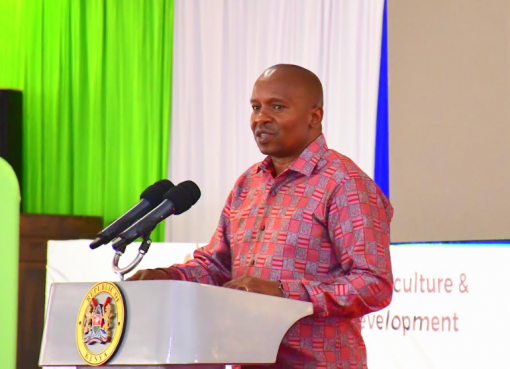The Director of the National Anti-Corruption Campaign Steering Committee, David Gathii has hinted for the need for massive public education programmes for the fight against corruption to succeed.
Gathii who was speaking in Mombasa on Wednesday underscored the need to fight the social vice in all its manifestations through the creation of public awareness.
He said the steering committee encourages holistic approach to curbing endemic corruption in the public and private sectors.
Gathii said this when the committee members paid a courtesy call on the Mombasa Deputy County Commissioner (DCC), Mohamud Salim at Uhuru na Kazi Building.
He said the anti-corruption steering committee members are currently visiting several counties to enlighten Kenyans at the grassroots the inherent danger of graft in a bid to reduce corrupt incentives across all parts of the public and private spheres.
“We have so far activated anti-corruption civilian oversight committees in 32 counties and they have embarked on creating public awareness about the social vice,” he said.
He said the civilian oversight teams being rolled out are aimed at increasing sensitisation efforts in trying to curb graft at the community levels.
Gathii said his committee is seeking partnership with the office of the county commissioners and county governments to ensure that public projects are insulated from corrupt practices.
The Director was accompanied by the Chairperson of the committee, Aden Wachu and the Chairlady of Maendeleo ya Wanawake;also a member of the committee RahabMwikali among others.
Wachu appealed to religious leaders to join the fight against corruption by preaching about the debilitating social
economic impact of corruption from their places of worship.
He said the negative effects of corruption in the country has reached alarming levels, adding every Kenyan should play a role in tackling the vice from all fronts.
“Its high religious leaders open up spiritual dimensions in stemming run away corruption in the society,” he said.
He challenged the public to support the renewed fight against corruption and misuse of public funds at the devolved units.
“We don’t have powers to arrest and prosecute the corrupt, our role is limited to creating awareness and pointing out the dangers associated with corruption,” said Wachu.
Ms. Mwikali suggested that corruption be taught in schools to inculcate its effects on society and the country to learners at an early age.
”We must teach our youth good norms right at the school level in order to become honest and responsible citizens,” said the Maendeleo ya Wanawake boss.
She said it is high time the government introduced anti-corruption as a subject in schools so that students learn about the detrimental effects of corruption and why it is unacceptable.
On his part, Salim said public discourse is a critical element in any anti-corruption drives and urged the steering
committee to provide more platforms for Kenyans to interact with the advocacy committee.
“Its high time Kenyans learnt that corruption is a high risk venture and not a high gain venture,” said Salim.
The administrator noted the government was committed to eradicate the vice saying those implicated in corruption will face the law regardless of their social or political positions.
Salim suggested that billboards advertising construction of public projects should include the cost and time frame for public scrutiny.
By Mohamed Hassan




